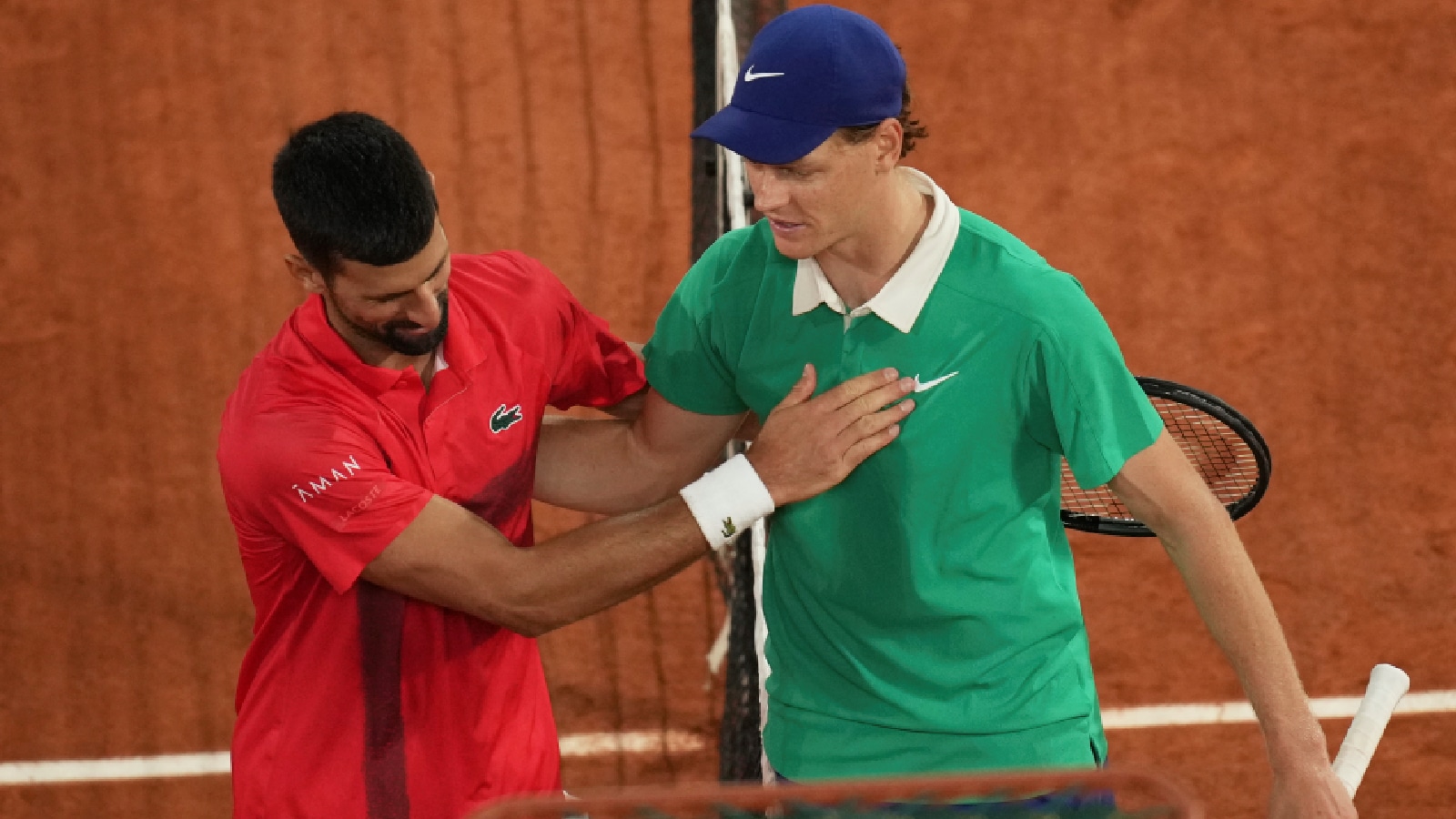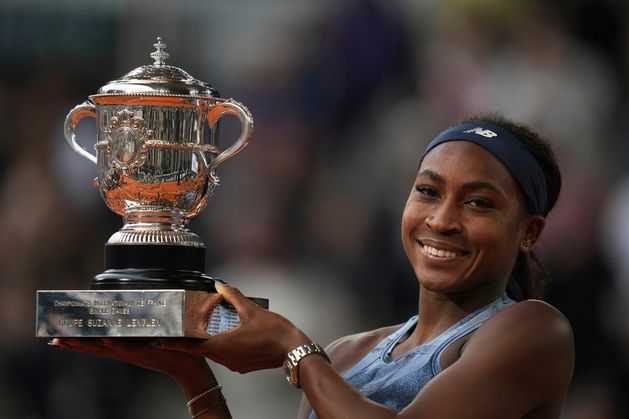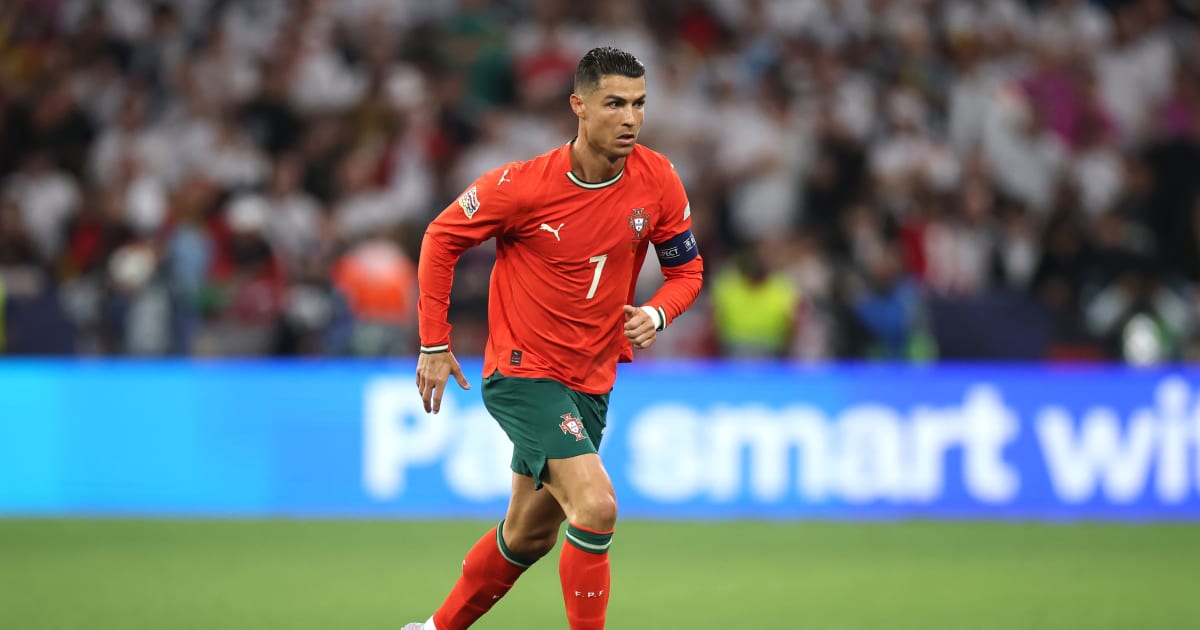French Open: Jannik Sinner outlasts Novak Djokovic in straight sets, a result of tennis’s new world order

At the end of April, after suffering a third successive defeat on clay, and seeing two first-round exits at Masters 1000 events, Novak Djokovic bleakly admitted that it is time for him to accept the ‘new reality’ that his career is in now.Articulate as always, Djokovic succinctly summarised his frustrations at being unable to lift his game and motivation back to the world-dominating levels it had been only a few years ago. A month later, with nine consecutive wins on clay, including the scalping of the World No. 3 and a 100th career title, perhaps Djokovic himself may confess that those concerns may have been a tad bit exaggerated.But as Jannik Sinner, the World No. 1 and new dominant force in men’s tennis, ran the 24-time Major winner ragged, beating him 6-4, 7-5, 7-6 (3) in their French Open semifinal late on Friday, Djokovic was indeed forced to confront a new reality, just not the one he had forewarned a month ago.Story continues below this adALSO READ: ‘This could have been the last match here,’ says Novak DjokovicDjokovic still remains the tactical master of this sport, with a playbook consisting of every conceivable trick and an arsenal full of deadly weapons. But the complete style of play that he pioneered, and later perfected, is no longer the defining way to win on tour.In tennis’s new world order, it is the attack-first baseline play executed by Sinner – and to an extent, Carlos Alcaraz, who will meet the Italian in the title clash on Sunday – that now rules the roost. Every single ball is pulverised with pure, destructive shotmaking that can overwhelm all opponents and strategies in the neutral exchanges, relentless power meeting needle-like precision.Flawless Run to the Final 🔝 Sinner takes down Djokovic and reaches the #RolandGarros final without dropping a single set. Alcaraz awaits! 🎾🔥 Watch the best moments of this epic clash—highlights presented by @Emirates ✈️#RolandGarros #FlyBetter #Emirates pic.twitter.com/LPFhQsI9S9 — Roland-Garros (@rolandgarros) June 6, 2025Let there be no exceptionalism about this result. Djokovic was neither lacking motivation nor physically compromised. He was razor sharp and raised his game as much as he could, contending with the pure venom escaping Sinner’s racquet as the match wore on. For that alone, the Serb, at 38, on the back of a disappointing year against the World No. 1 who is 14 years his junior, deserves plenty of credit.This was perhaps the best tennis that Djokovic has mustered since his remarkable Olympic gold triumph at this very stadium last year. If expectations were harboured of him to have left his best for last – the finest tennis he can produce for the toughest opponent he can face – that is exactly what he did. That it came in a straight-sets defeat may feel like a miserable critique of his declining level but that is far from the truth. Instead, it speaks of Sinner’s phenomenally high level atop the tennis world at the moment. A lesser player would have crumbled in the same encounter. Plenty have in the past five years.Story continues below this adIn an utterly absorbing three-hour battle that was a lot closer than the scoreline suggested, the terms of engagement were dictated entirely by Sinner. It was the Italian who took charge from the baseline from the very beginning; he was the one to come up clutch under pressure, to serve himself out of trouble when required, to be the superior returner, to make all the right decisions in the decisive moments, and even as he stepped into Djokovic’s lair – tiebreaks in high-stakes matches – the pressure he piled on him made his opponent blink first.As Djokovic was stretched across the court to all corners, he was made to execute his plans with total perfection. Anything else led to him being blown away, his margin for error reduced infinitesimally. Ultimately, Sinner proved too much for the Serb, the World No. 1 rolling into a fourth Major final, after winning each of his last three, without losing a single set in the tournament. He becomes the fifth man this century to reach three consecutive Grand Slam finals, following Roger Federer, Rafael Nadal, Djokovic and Andy Murray.🎙️ "Jannik showed why he's No.1 in the world" Novak Djokovic congratulated Sinner on reaching the #RolandGarros final and expressed his gratitude to the crowd for their support tonight. 🎾👏 pic.twitter.com/5YcwdCnEtt — Roland-Garros (@rolandgarros) June 6, 2025Sinner’s remarkable composure under pressure marked the two most vital passages of play in this match. After taking control early on – one early break had given the Italian the impetus to take the first set – a similar pattern followed in the second, until his cunning opponent turned the screws.In 40 previous service games against Djokovic, Sinner had not conceded a single break point. He would do so for the first time while serving for the second set, as the Serb and a recalcitrant crowd turned Court Philippe Chatrier into a pressure cooker. Having ceded the advantage, and given Djokovic’s history, the match may have been expected to turn, but Sinner stayed cool, rained down big returns, got the break back and served out for a 2-0 lead.Djokovic would go up another gear while fighting in the third set, but Sinner would continue to match it until the very end once again. The Serb found himself with multiple set points on Sinner’s serve up 5-4, but the Italian nervelessly came up clutch once again, eventually taking it into a tiebreaker. The seven-point shootouts are normally where the Serb prevails with aplomb, but here, with the mountain of the scoreline and a relentless opponent behind him, he would crumble. Djokovic made three unforced errors, including netting the most simple of overheads, as Sinner walked away with the straight-set victory.Story continues below this adThe Italian sets up a dream final with Alcaraz, the defending champion and only player who comes close to his own sky-high level. It will be their 12th meeting, and first in a Grand Slam final.For Djokovic, there are plenty of positives to take into Wimbledon; his superior grass court expertise is more likely to prevail over the young brigade there than on the unforgiving clay of Roland Garros, a surface on which his adversaries have already fine-tuned their games.But, regardless, he leaves Paris with the knowledge that even at his best level, he is no longer the best tennis player in the world. A new reality indeed.









